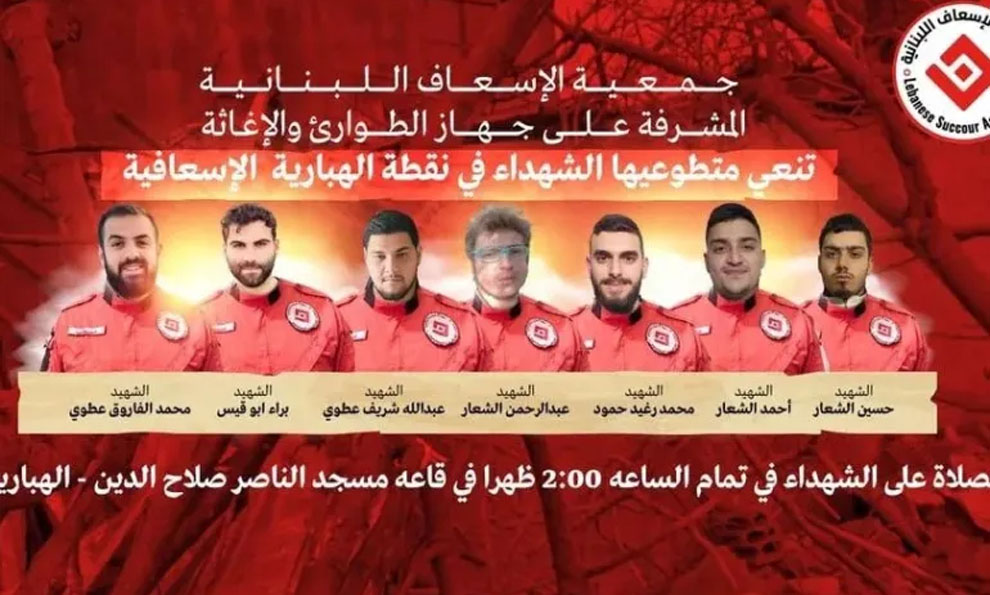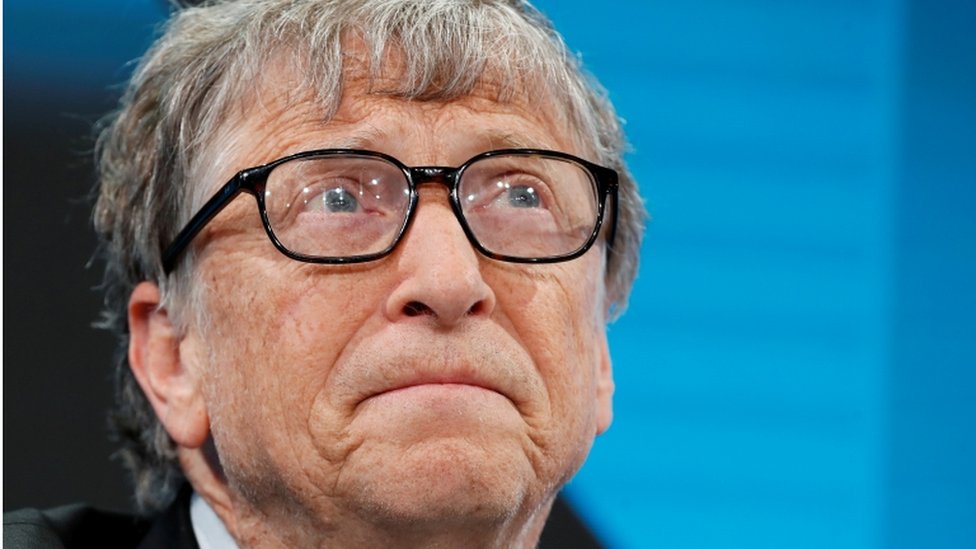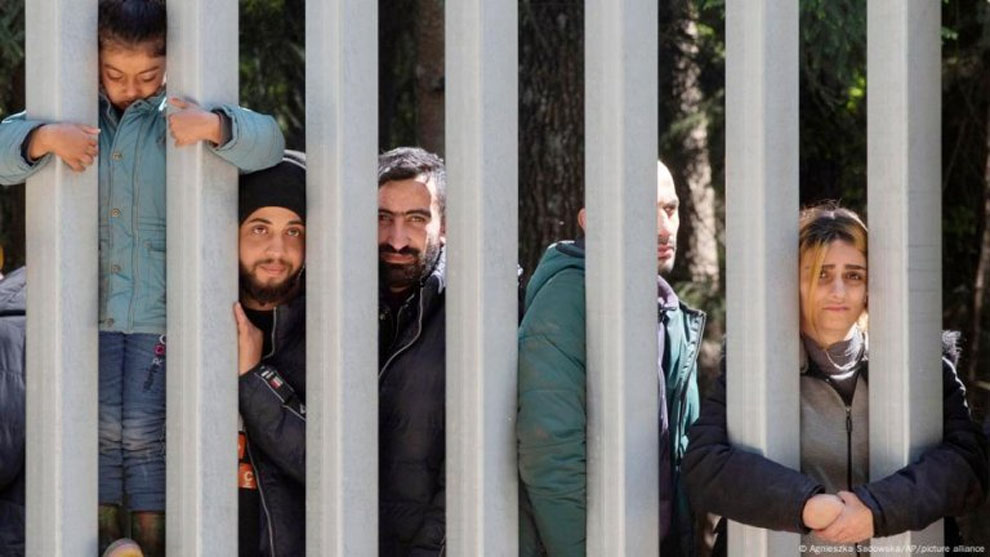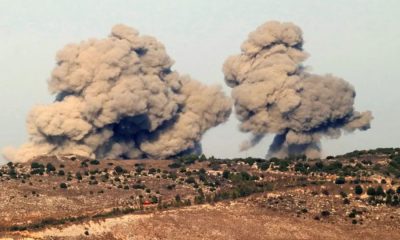International
Gaza: Israel expands war on medics to south Lebanon, rights group alleges

Gaza: Israel expands war on medics to south Lebanon, rights group alleges
Most evenings in al-Habbariyeh, a small town in southern Lebanon’s verdant hills, the young volunteers of the Lebanese Emergency and Relief Corps centre liked to get together to play cards or share an argileh (hookah).
On March 26, a clear, brisk night, Abdullah Sharif Atwi, Abdulrahman al-Shaar, Ahmad al-Shaar, Baraa Abu Qais, Hussein al-Shaar, Muhammad al-Farouq Atwi and Muhammad Ragheed Hammoud were in the second-floor hangout.
The Israeli drones hovered overhead, they had been going all day and now their sound was fading almost into the background.
The group was in high spirits, taking videos of themselves and joking about.
About half an hour after midnight, just into March 27, Israel hit the centre with an air strike, levelling the two-storey building.
“People from the village ran down to see what happened,” Ali Noureddine, a journalist and activist from al-Habbariyeh, told Al Jazeera. “It’s a small village,” he said. “We’re all one family.”
The seven young men had been killed and four others badly injured.
Most of the 18-to-25-year-olds had been students.
Hunted health workers
Israel killed a total of 17 people in three different towns just that day, 10 of them medical workers.
The attack made March 27 the deadliest day for medical workers in south Lebanon.
An attack on a cafe in Ras al-Naqoura killed a medical worker from Amal’s Al-Risala Scouts and three others, including one Amal member.
READ ALSO:
- Keyamo gets warm reception from UAE, Emirates officials, says airline fine-tuning Dubai-Lagos flight resumption
- NLC threatens First Bank for non-compliance with strike in Adamawa
- Ondo gov okays N35,000 wage award for tertiary institution workers
The third attack that day was in Tayr Harfa which killed two paramedics from Hezbollah’s Islamic Health Association along with four Hezbollah fighters.
The Israeli army spokesperson said the al-Habbariyeh attack successfully targeted a “significant terrorist” in al-Jamaa al-Islamiya.
“They didn’t say who the ‘terrorist’ was,” Mahyaddine Qarhani, director of the Lebanese Emergency and Relief Corps’ Ambulance Association, told Al Jazeera.
Investigations by human rights organisations found no evidence of military activity or fighters on-site.
Human Rights Watch called for the al-Habbariyeh attack to be investigated as a war crime as leading rights groups currently investigate other Israeli attacks on medical workers.
Hezbollah and Israel have been trading attacks across the border since October 8, the day after Israel launched its war on Gaza in retaliation for a Hamas-led attack on Israel in which 1,139 people were killed and about 240 others taken captive.
More than 92,600 people have been displaced from southern Lebanon by the relentless Israeli attacks, according to the International Organization for Migration.
The people still in the south are vulnerable, like the elderly and lower-income people who rely on the medical services the Lebanese Emergency and Relief Corps provides.
Like many services in the country, Lebanon’s healthcare is mostly privatised as the Ministry of Public Health relies on private groups and NGOs to fill the gaps.
The medical situation in Lebanon was already deeply affected by a five-year-old economic crisis, with 80 percent of the population below the poverty line.
Now, the south is also contending with war and with its few medical workers and facilities being targeted by Israel.
Data on the attacks on south Lebanon are hard to find, with locals saying many incidents go unreported.
Al Jazeera collected data from monitoring groups indicating at least 18 Israeli attacks on medical personnel and facilities, resulting in the deaths of 20 health workers, as of May 31.
They include members of Lebanon’s civil defence and health workers for the medical branches of Hezbollah, the Amal Movement and al-Jamaa al-Islamiya.
READ ALSO:
- US-based Nigerian lady killed by Metro bus had walk signal – Police
- What Nigerians will suffer if labour strike continues – Labour minister
- N6m land fraud allegation lands woman, daughter-in-law in Port Harcourt court
Each group has an armed wing engaging with the Israeli military but their healthcare workers are protected by international humanitarian law.
This protection as medical workers lapses only if they participate in military activities.
There has been no evidence that this was the case in any of the attacks on medical workers, multiple sources, including representatives of leading human rights and monitoring agencies, told Al Jazeera.
None of the attacks showed “evidence of any association with the armed wing of these groups”, Ameneh Mehvar, a Middle East specialist at ACLED, told Al Jazeera.
Possible war crimes
The attacks on medical workers in southern Lebanon have gone largely unreported, although they are contributing to significantly degrading the quality of life for the people left there.
Medical personnel cannot be targeted “even if they’re close to military targets”, Shane Darcy, a professor at the Irish Centre for Human Rights, told Al Jazeera.
“Even if there is a Hezbollah [fighter] present, the principle of proportionality means [Israel’s military] has to weigh the impact on civilian proportionality,” a source at a renowned human rights organisation told Al Jazeera, speaking on background.
There is no exact formula for proportionality, Darcy said, but targeting or killing civilians deliberately is a crime.
“There’s a lot of danger [for medical workers],” Dr Wahida Ghalayni, who works at the Ministry of Public Health, told Al Jazeera. “These are direct attacks [on them].”
The pattern of Israel’s lack of accountability and continued attacks leave Lebanon’s medical workers feeling Israel is directly targeting them.
A day before the al-Habbariyeh attack, on March 26, an Israeli air raid hit Tayr Harfa’s civil defence centre, injuring four health workers.
Then two Hezbollah paramedics “were killed in a second strike on the same location during the same day”, according to data collected by ACLED.
READ ALSO:
- Gunmen kill ex-Attorney General’s father in Nasarawa
- Gaza ceasefire plan turns deadly game of survival – BBC
- EFCC offers 5% reward to whistleblower in naira abuse case
“This is nothing new,” Rabieh Issa, civil defence commissioner for Al-Risala Scouts, told Al Jazeera.
“We don’t normally deploy until 15 minutes after the first hit because they hit again and again. So, for our own security, we wait a bit.”
But it is not only warplanes that the hunted medical personnel need to look out for.
On March 21, Israeli warplanes struck Yarine during fighting with Hezbollah, according to ACLED.
Israel said they were targeting Hezbollah’s military infrastructure but that does not explain why ambulances that rushed in after the attack came under “heavy machinegun fire” from the Israelis.
And there are many more incidents.
On March 4, a medical centre in the Al-Ouwayni neighbourhood of Odaisseh was hit by an Israeli air raid, killing three Hezbollah-affiliated health workers. On February 22, four people from Lebanon’s civil defence were killed in air attacks on Blida. On January 11, two medics were killed in the southern town of Hanin when Israeli jets struck the Islamic Health Society building.
Israel claims it is attacking “Hezbollah cells”. But in many of its attacks on medical workers or facilities, no fighters were killed.
In April, media outlet +972mag reported on Lavender, an artificial intelligence (AI)-supported system Israel uses to select targets for assassination and calculate “acceptable civilian loss” for each killing.
For a low-level Hamas operative, the Israeli army determined that 15-20 civilian deaths are permissible, while “the army on several occasions authorised the killing of more than 100 civilians in the assassination of a single commander”.
READ ALSO:
- Labour may call off strike today as FG promises minimum wage above N60,000
- MURIC condemns labour strike, says it’s a plan to frustrate Muslims
- Strike: Let’s avert another round of hardship, Sultan tells labour
“I’d find it hard for any international humanitarian lawyer to say that’s an acceptable application of proportionality,” Darcy said. “Those are possible war crimes.”
Gaps in the south
Back in al-Habbariyeh, the Israeli attack has left a big hole in the community.
“We’re a small village … all grieving,” Noureddine, who used to visit friends at the centre, said.
“Israel hits whoever they want. I don’t know if tomorrow someone else will die or not.”
But the decimated team has also left a big gap in the community’s medical care.
The Emergency and Relief Corps suspended operations in al-Habbariyeh after the attack, fearing that moving operations would simply attract attacks on civilians in other neighbourhoods.
“We can’t work in that area anymore,” Qarhani said. “Nobody knows why they hit the centre but it’s completely destroyed.”
The outskirts of al-Habbariyeh have been hit as recently as a month ago.
“Israel is still hitting us and if we make a new centre they’ll come and bomb it again,” Noureddine said. “They’re hitting civilians and we don’t have people whose lives we can simply sacrifice.”
“The Americans give Israelis weapons and hit us with them and no one will hold them accountable or will even look at what they’re doing,” Noureddine said.
“No one is held accountable for Israel’s attacks.”
Gaza: Israel expands war on medics to south Lebanon, rights group alleges
SOURCE: AL JAZEERA
International
$100m coin collection buried for decades to be auctioned

$100m coin collection buried for decades to be auctioned
A coin collection, much of which remained buried underground for over 50 years, is expected to surpass $100 million at auction, according to experts.
Named the Traveller Collection, this extraordinary assemblage is believed to be the most valuable coin collection ever brought to auction.
The coins will be sold gradually over the next three years, with the first auction set for May 20.
Beyond its immense value, the collection’s origins make for a fascinating tale.
Spanning over 100 territories and encompassing coins from ancient times to the modern era, the collection is being auctioned by Numismatica Ars Classica.
What sets it apart is that most of the coins remained hidden underground for half a century before resurfacing.
According to a press release shared with CNN, the anonymous collector behind the collection began acquiring gold coins after the Wall Street Crash of 1929.
Over time, he developed “a taste for coins with great historical interest, beauty and rarity” and eventually amassed approximately 15,000 coins.
During the 1930s, he and his wife traveled extensively across the Americas and Europe, acquiring rare and historically significant coins while meticulously documenting their purchases.
READ ALSO:
- EFCC re-arraigns son of ex-PDP chairman for alleged N2.2bn oil subsidy fraud
- Group says Natasha’s recall will deepen democracy
- We welcome Gov Makinde’s U-turn on Shari’ah panel – MURIC
Despite settling in Europe at a time when Hitler’s Nazi party loomed over the continent, the collector sensed the impending danger. In response, he carefully packed the coins into cigar boxes, which were then placed inside aluminum containers and buried underground, where they remained undisturbed for five decades.
Among the collection is a 50 Toman coin, part of an “exceedingly rare” set minted in Tehran and Isfahan during the late 18th and early 19th centuries.
International
AI will replace doctors, teachers, others in 10 years – Bill Gates

AI will replace doctors, teachers, others in 10 years – Bill Gates
Bill Gates, a co-founder of Microsoft, has claimed that improvements in artificial intelligence (AI) over the next decade may render humans superfluous for the majority of work.
In a recent interview with comedian Jimmy Fallon on NBC’s The Tonight Show in February, the billionaire philanthropist discussed how AI may take over many facets of life and business.
Gates remarked that expertise is currently “rare”, emphasising the continuous reliance on human specialists in industries such as medicine and education.
For example, we continue to rely on highly trained individuals, such as “a great doctor” or “a great teacher”, whose knowledge cannot be simply replaced by AI.
However, “with AI, over the next decade, that will become free, commonplace — great medical advice, great tutoring,” Gates said.
READ ALSO:
- Senate seeks FG’s immediate intervention to slash data prices
- Reno Omokri: Nigeria gives more opportunities than US, Britain, Canada
- Driver remanded for causing Osun varsity students’ death
In other words, Gates believes that the world is entering a new era of “free intelligence”, as he described in a recent interview with Harvard University professor and happiness specialist Arthur Brooks.
According to Gates, this transition will result in rapid breakthroughs in AI-powered technology, making them more accessible and affecting almost every part of our lives.
These breakthroughs will vary from more effective treatments and diagnoses to widely available AI instructors and virtual assistants.
“It’s very profound and even a little bit scary — because it’s happening very quickly, and there is no upper bound,” Gates told Brooks.
The discussion of how humans will fit into an AI-powered future continues.
Some analysts suggest that artificial intelligence will improve human productivity rather than completely replacing labour, hence driving economic growth and creating new jobs.
However, Microsoft AI CEO Mustafa Suleyman cautions that technological improvements in the coming years will disrupt the nature of most occupations across nearly all industries, potentially exerting a “hugely destabilising” influence on the workforce.
AI will replace doctors, teachers, others in 10 years – Bill Gates
International
Poland suspends migrants’ right to apply for asylum

Poland suspends migrants’ right to apply for asylum
Poland has temporarily suspended the right of migrants arriving in Poland via its border with Belarus to apply for asylum.
Prime Minister Donald Tusk announced it would be happening after the controversial bill, which will allow Polish authorities to suspend this right for up to 60 days at a time, was signed into law by President Andrzej Duda.
Tusk had said it would be adopted “without a moment’s delay” while Duda said the changes were needed to strengthen security on the country’s borders.
But the law has been criticized by rights groups including Human Rights Watch, which said the EU should take legal action against Poland if it was implemented.
The group urged the country’s parliament last month to reject the bill, saying it “flies in the face of Poland’s international and EU obligations” and could “effectively completely seal off the Poland-Belarus border, where Polish authorities already engage in unlawful and abusive pushbacks”.
READ ALSO:
- Trump slaps 25% tariffs on car imports to US
- Reps pass bill to strip Vice President, governors, deputies of immunity
- Businessman collapses in court during trial over $578,000 cash seizure
The government said previously the suspension would only be applied temporarily to people who pose a threat to state security, for example large groups of aggressive migrants trying to storm the border.
Exemptions will be made for unaccompanied minors, pregnant women, the elderly or unwell, anyone exposed to “real risk of serious harm” by being returned and citizens of countries accused of conducting the instrumentalization of migration – like Belarus
Tusk has dismissed criticism from human rights groups.
“Nobody is talking about violating human rights, the right to asylum, we are talking about not granting applications to people who illegally cross the border in groups organised by Lukashenko,” he said in October.
Since 2021, Poland, Lithuania, Latvia and Finland have seen a huge increase in the number of people crossing into their countries illegally from Belarus and Russia.
Polish authorities have sent thousands of troops and border guards to police its border with Belarus and built a 5.5-metre-high steel fence along 186 km of the frontier where at times several thousand migrants have been left stranded.
Rights groups estimate more than one hundred people have died on the borders between Belarus and Poland, Lithuania and Latvia since 2021.
EU eastern flank countries and the European Commission have accused the Belarusian and Russian authorities of weaponising migration to create a new route into the EU to destabilize the bloc.
Poland suspends migrants’ right to apply for asylum
BBC
-

 metro1 day ago
metro1 day agoRivers administrator Ibas fires Fubara’s political appointees
-

 metro1 day ago
metro1 day agoJUST-IN: Ex-Oyo gov Ajimobi’s first child Bisola dies At 42
-

 International2 days ago
International2 days agoCanada removes bonus ranking points for job offers in Express Entry system
-

 metro2 days ago
metro2 days agoHow ritualists, native doctor drugged, murdered underage sisters in PH – Police
-

 metro1 day ago
metro1 day agoFG declares public holidays for Eid-el-Fitr
-

 Sports3 days ago
Sports3 days agoNigeria’s Super Eagles falter in W’Cup qualifiers against Zimbabwe, S’Africa lead, Egypt, Morocco qualify
-

 metro3 days ago
metro3 days agoAkpabio has habit of abusing women, says Atiku
-

 Africa1 day ago
Africa1 day agoNiger coup leader sworn in as president for five years













